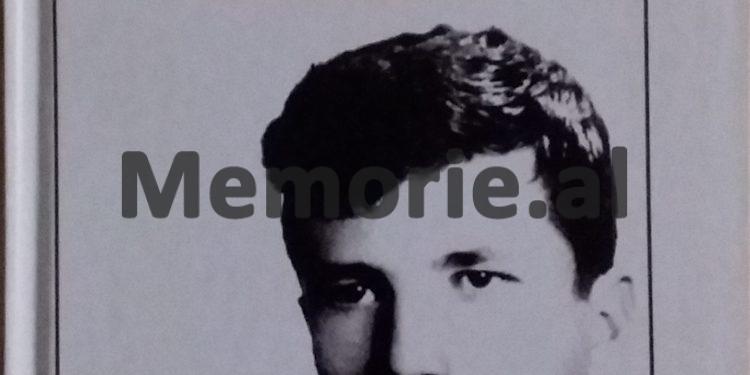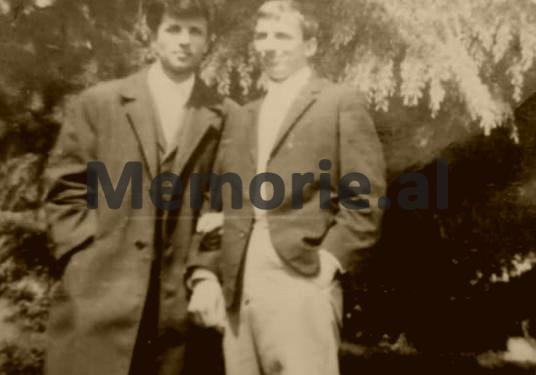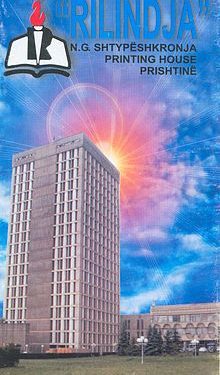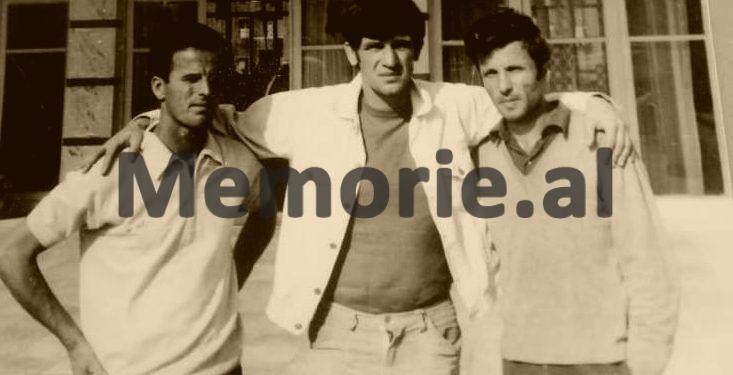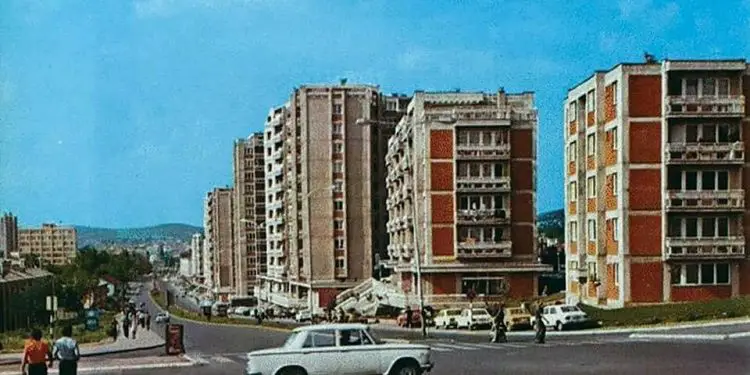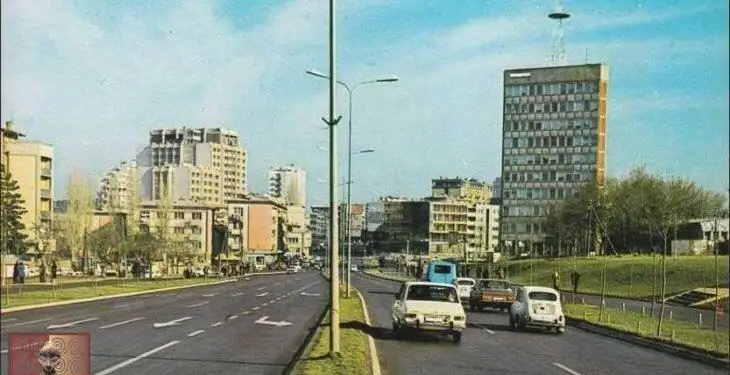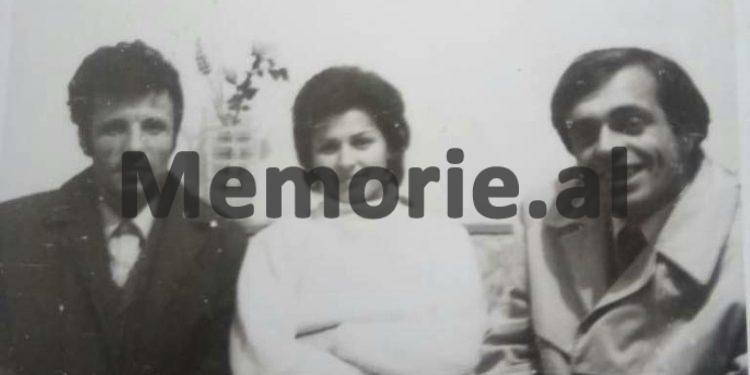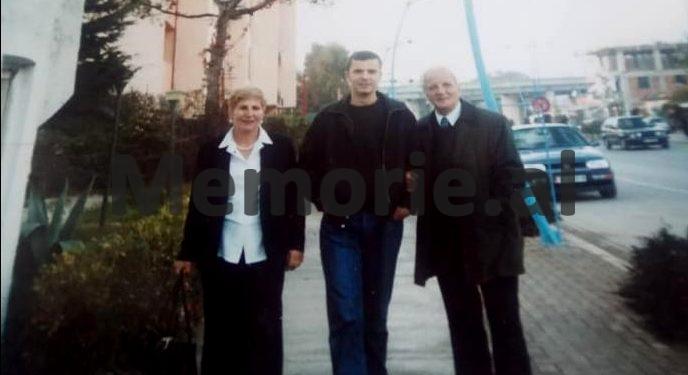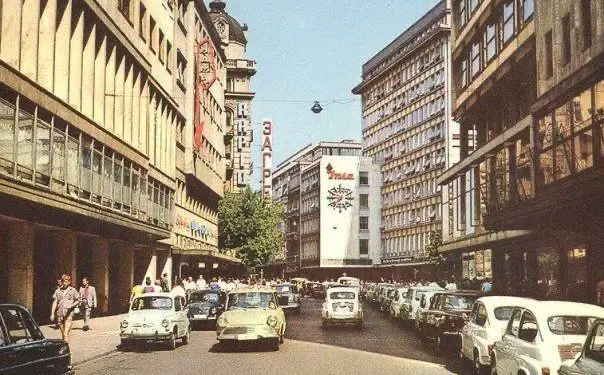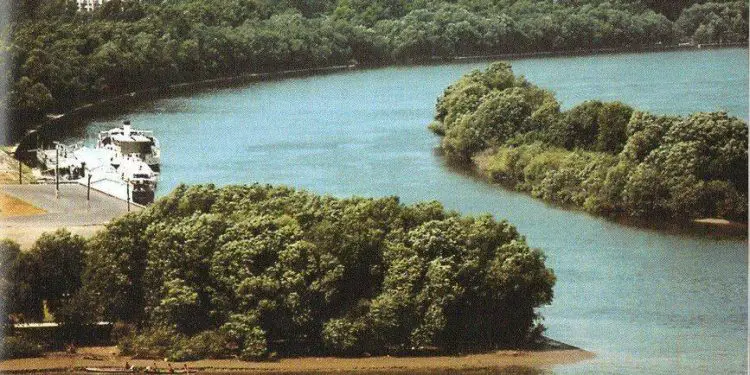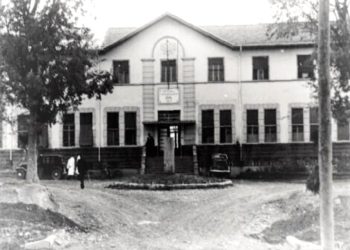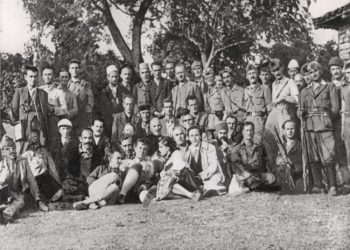By Esat Myftari
Part one
Memorie.al publishes the unknown story of Esat Myftari, originally from Peja, Kosovo, who was in high school when he was a member of a group of young men who opposed the official Belgrade policy against the discriminatory policy against the Albanian population that lived in his own lands in Yugoslavia, started working as a journalist in “Rilindja” of Prishtina from where he was proposed as a correspondent of TANJUG Agency, but refused and in 1963 was forced to flee and come to Albania, intending to asked for help and support from the mother country, for the clandestine organization of “Boys of Peja. Numerous vicissitudes in the home country and the constant pursuit of the State Security since the time of studies in Tirana and the period when he served as a teacher in the town of Shengjin and the villages of Mata Coast, where he was arrested in 1975, after he had formally requested repatriation to his homeland Kosovo, sentencing him to ten years in prison on charges of “agitation and propaganda”, which he suffered in the Spaç camp. The whole painful story of the journalist, publicist, researcher, translator, MP and diplomat, Esat Myftari, is described with a rare literary mastery in his book, “Your death, my life” an autobiographical novel that has just published by the Publishing House “Lena Graphic Desing” of Prishtina, and with the permission of the author, will be published in parts by Memorie.al
The unknown story of journalist, publicist and writer Esat Myftari
Esat Myftari was born on June 16, 1940, in the city of Peja in Kosovo, where he comes from the early origin of his family. He completed his first elementary school education, 7-year-old and high school, in his hometown, completing them in 1959. Also, in 1959, Esat, a 19-year-old boy, began his studies at the Faculty of Law of the University of Belgrade. In love with history and literature, he started writing at a young age when he was in the 7-year school benches and in the faculty period, he became a member of the Literary Club “Përpjekja” based in the Student City of “New Belgrade”. , where he affirms himself quickly and from time to time, writes poems and critical literary views, but, due to their content, does not send them for publication.
In 1961, after successfully passing the relevant competition, Esat started working as a journalist in the daily of the province of Kosovo, “Rilindja”, where he is assigned to cover the chronicle of the city of Pristina and the Kosovo Trade Unions. In the same year he was offered a qualification scholarship at the Yugoslav Agency “TANJUG”, with the prospect of becoming a correspondent outside Yugoslavia at the time. But his joy at the scholarship that was destined to send him to the outside world was quickly dashed, as the specialization offered to him was conditional on his membership in the Communist League of Serbia, which 20-year-old Esat refused. categorically.
Meanwhile, in 1963, he participated in a group of young men who disagreed and were against the policy pursued by official Belgrade towards the Kosovo Albanians and wherever they were in their lands under Yugoslavia, and on behalf of the “Peja Clandestine Group”. , as their representative, crosses the border illegally and comes to Albania. Esat’s goal as a representative of the “Illegal group of boys of Peja”, was to establish contacts with the Albanian state and to seek various support and assistance, for the well-functioning of that group of young boys, which aimed to resist the discriminatory policy of official Belgrade to the Albanian population in Yugoslavia.
In 1974, some members of this group were arrested by the official authorities of the Yugoslav Ministry of Internal Affairs, accused of participating in the events of 1964, when the Albanian national flags were unfurled in the main cities of Kosovo and when they were taken strict police and judicial measures against them. The main motto of this mass movement, which was the first of its kind in post-war Kosovo, was the unification of Albanian lands with their “mother” state, Albania.
Meanwhile, Esat, who was in Albania, as well as some of his Kosovar emigrant compatriots in Albania, gained a right to study and in 1965, he began his studies at the Faculty of Natural Sciences in Tirana, in the “Bio-Chemistry” branch. After the third year of studies, disappointed by the official policy of the communist regime of Enver Hoxha and the treatment of Kosovar emigrants in Albania, who upon their arrival in their homeland, it seemed that “from the rain they had heavy hail”, interrupts his studies and requests repatriation!
Of course, this was not approved by official Tirana and in 1969, Esat started working as a teacher in the 8-year school in the town of Shengjin, in the district of Lezha, where he worked until 1974, from where he was transferred to the village of Tale. of the Matthew Coast, where he also worked with rare dedication. As during the whole period, he was working and living in the district of Lezha, Esat was regularly monitored by all means by the State Security organs, even in the school where it was said that he had been sent on purpose, because they were afraid of an escape. his opportunity to go to Yugoslavia from Shengjin, he is arrested and sentenced to 10 years in prison, accused of “agitation and propaganda against the popular power”!
After serving his full sentence while serving his sentence in the Spaç camp, etc. (not benefiting from a single day of reduced sentence), Esat was released from political prison in 1985 and returned to the district of Lezha where he had worked and lived before the sentence and in 1986 , starts working as a worker in the Paper Factory in Lezha. That same year he started a family and then two sons were born.
In 1990, at the beginning of pluralism, Esat took an active part in the popular movements for the overthrow of the communist dictatorship in Albania and with the establishment of the branch of the Democratic Party for the district of Lezha, at the beginning of 1991, for his past and contribution. great at the beginning of those popular protests, he is elected secretary of that branch.
Also, as a result of that contribution, in the first pluralist elections of March 22, 1991, Esat was elected a member of the Democratic Party in the People’s Assembly, representing the voters of the Mata Coast, where he had worked as a teacher until the day of his arrest in 1975.
.A year later, in the autumn of 1992, he was appointed Director of the Diaspora Directorate at the Ministry of Foreign Affairs of Albania, headed by the Minister, Alfred Serreqi. In that position, Esat worked diligently until 2000, when he was appointed diplomat at the Albanian Embassy in Riyadh, where he remained until his retirement.
Since that time, Esat has been devoted to his passion, writing, studies and translations and since 2011, he has started publishing several books, which have been welcomed by critics and readers, also because of their subject matter, as well as the variant of Gegërisht that he wrote them, which is very rare in Albanian publications of the mother country!
The first book published by Esat Myftari is “Emrush Myftari” (monograph), followed by: “Kosovo and Enver Hoxha” (study), “Political profile of Esat Mekuli” (monograph)
As well as “Your death, my life”, which is an autobiographical novel, where he has masterfully and chronologically described most of his life, from family and life in Kosovo as a high school student, escape to Albania , numerous vicissitudes from State Security surveillance and persecution, arrest, investigation, trial and deportation to Spaç prison.
All the events and everything described in the book “Your death, my life”, are real and the characters there are presented with their concrete names and surnames, while only those people who badly affected his life, (mainly, those of bodies of the Ministry of Internal Affairs of that time, such as operatives, investigators, police officers, heads of the Ministry of Internal Affairs and the Branch of Internal Affairs of Tropoja, Lezha, witnesses in his trial, etc.), the author was has changed changed only the names, giving them their real surnames.
Excerpts from the book “Your life, my death” by Esat Myftari
DECISION
After Ridvan’s resignation from “Rilindja”, a new situation was created for the Peja group. The five in those days were located in three cities: Sarajevo, Belgrade and Peja. The news was generally received with despair, because it was thought that his penetration into high journalistic circles and going abroad as accredited somewhere – no one could know in advance in which country – would bring a new momentum. But as a Muslim he was likely to be thrown somewhere in the Middle East or Turkey. In the telephone conversation he had with those in Sarajevo, he received a colder answer than he expected and was advised to go there as soon as possible, as they were busy with the topics of diplomas. Then Ridvani, as if he came to his senses and realized that he had started to act with a certain haste and impatient impatience. After all, they were in a state of waiting and no leaves were moving from Albania. What if they were unwanted by them for one or more reasons?
Even the situation at home was not very calm. They were careful not to ask him what was happening to him, but, nevertheless, he was feeling the burden of their anxious gazes on his back. Until July, two or three long months of struggling through such conjectures awaited him. His only antidote was reading and deepening his French. But the interest in the lands of the profession had locked him. Ridvani swore he would not spend any more hours in those hypocritical texts so inconsistent with reality. The excellent graduate of jurisprudence, D. Kasapolli, when they were returning to Peja a year ago, told him at the hospital, near the train station:
– Do you see these painters painting the facades? Well, we arrogant lawyers, when we get into the profession, we will be nothing but painters of the system we have. Like it or not, hand over the mazbat.
– But then do not harass the Serbian monopoly!
– No, I said it figuratively. Of course, we need Kosovar lawyers and we will have them, even in large numbers.
– You can.
– I know the history of trials in Kosovo: it is one of the blackest pages of the Serbian state, in both systems. Their monopoly on justice and medicine has sucked our blood with cotton and the bad thing was that, from the outside, it seemed as if they were and are completely legitimate.
Ridvani was surprised by these remarks of his, having hitherto taken him as very disregardful of these matters. Hence this occasional conversation seemed to justify its final stand, and it was being convinced that almost everyone was suffering from similar dissatisfaction.
Towards the middle of July, they gathered in Peja. They decided to hold the meeting at A. Bajri’s house as it had plenty of rooms. It was located on M. Tito Street, in the center of the city. From its second floor, the courtyard and the street were seen as in the palm of your hand. Not that they were afraid of any eavesdropping or persecution – they were meeting as before, when the idea of organizing had been distant, even with not so much respect. But now that they had left behind a kind of easy but veiled controversy over how to measure, each was accompanied by the real or imagined shadow of eavesdropping. Among them, the most troubled was Ridvani, because he, during these long months of contemplation, had managed to define his choices well: if a decision were to be made to make the third proof of the connection with the Albanian state, then with they would surely start it, since it was really distinguished for its eloquence, for its argumentative force, and, moreover, it was more inside details. On the contrary, he intended to take the West to become a writer. He was convinced – this conviction was nurtured especially in Prishtina – that he had a talent for literary writing and that if he was persistent, he would surely succeed. In addition, it was said everywhere that the easterners of communist countries, when thrown into the West, found themselves in their professional preferences, and that freedom of expression there was the most wonderful stimulus of dormant artistic talents. On the other hand, after living acquaintances in Belgrade and Pristina with the authors of Kosovo – the absolute majority educated after the war – he was convinced that there could be no real and dignified literature. Because the Albanian-Serbian conflict was doomed to remain a taboo topic. Freed from this insurmountable obstacle, he would be able to provide his country with a free voice. This was Ridvan’s great new dream that he was nurturing within himself and that one day he thought of turning into a trilogy. Of course, he did not talk to any of his friends about it because it would seem like a dream.
When they sat around the table, nothing was felt in the house. A. Bajri had started the people of the house with tricks to their cousins. It was also decided that no one would take notes as things were known to the smallest detail, plus they would be safer for any inconvenient case. Ridvani had not met them for over five months and felt homesick. Apart from R. Shala, the others were legal and maybe that was why they were initially approached. At the top of the table was Sh. Deçan, not only because he was older, but also because not only among them, but also throughout the city, he was considered a noble and open-minded person. The bombing had really paralyzed his hand, but the other parts of his body, the waist and the face, had compensated for everything. He was one of the most handsome boys in town, and Ridvan even called him a walking angel.
Taking the floor, meaning a letter with Ridvan’s reprimands, he explained for the first time the first two failed attempts.
“The first was with Daci’s sister,” he said. – She was authorized to submit in Tirana the names of the five of us, with whom the connection could be made, here, in Peja or in the student club “Përpjekja”, based in Belgrade. We waited as long as we waited, but nothing came of it. The second test was Seiti, since he had decided to run away with his family, so we said to use this opportunity. Trust in him was complete. He was strong in Goli Otok and came from a well-known family, but we were not aware of our group. No news came from him either. In this state, as you are seeing, we are left in abeyance. But unlike us, Ridvan also lays out the Western alternative. So, let’s discuss the ways we have left. I am adding a third for myself: the attraction in our private lives up to a second time, more suitable for these jobs. Because, without any connection with the Albanian state, it is useless to enter this game.
- Daci, a little scared and scared, make a supplement.
– My sister and I had said that if, in the fourteenth line of the letter he would send me, the expression “the stone weighs heavily instead of itself” would appear, it would mean that the Albanian authorities did not comply with our request. And so, it really happened: after writing to me about the wonderful songs of Edith Piaf, he had found a way to incorporate this expression. “Ridvan,” he said, turning his face towards him, “that is why we called in Sarajevo.” We were afraid to let him know by letter or by phone.
“I see,” Ridvani said briefly.
– Then, it remains for us to discuss what Shefqeti said: how are we going to do it now and then? – intervene A. Bajri.
- Shala made a disastrous move.
– Withdrawal – by no means! After all, there is not only Tirana in the world – he said with a visible wave of rejection.
– I think to clarify in advance the state of our awakening with two important people, with whom you have charged me to complete the final talks.
– All right – replied Shefqeti.
– The work is quite simple, – started A. Bajri, – I think I have completed the task. As for Musa Hajji: he was direct and very approachable. He said he gladly accepted in principle, but sought additional justifications. Probably because he had fond memories of two years when he was expelled from all high schools in Yugoslavia and his friends were afraid to visit him at home. And with the other one, the philosopher, – and here he touched on the gas, – I was not pushed any further because he was deliberately staying very cold, as if I were talking to him about a fantasy topic. In short, he went crazy after a certain Mirjane, that Russian-Serbian mixture of Kragujevac, with whom he was acquainted from the first days of study. When I wanted to cool her off from her, she turned to me: We could not give it up. In the end, I do not have to deal with politics, I am interested in becoming a good dentist!” All the while I was talking to him, he was moving his eyes here and there, as if to hide some inner reflection.
Shefqeti added:
– And he left me an almost similar opinion about Musa, but for other reasons: he is our greatest scientific talent, the most diligent and intelligent Albanian researcher I know. It is shining everywhere. Why burden this bullet in the leg when he can become a personality in medicine?! So, we left it to his own passion and dedication.
Everyone looked into each other’s eyes in approval. And it was decided not to harass her anymore, even though she was willing to join them.
– Ridvan, – suddenly called A. Daci, – did you want to tell us a little about how the work was done that you left the “Renaissance” so quickly? Do you have any additional explanation from what we know?
– No, – said Ridvani, – because I had no written or oral motivation. I was simply burned with silence and mild sabotage. The bad thing is that I did not know in advance that membership in the party was an unspoken obligation, which I experienced as a trap.
– I think you did the right thing, – supported R. Shala. – Even the idea of camouflage seemed unrealizable to me. Tanjugu did not leave yesterday!
– Well, good. If necessary, let us move on to the main point for which we are gathered. Do you think that the third test should be done for a connection with official Tirana? Asked Sh Deçani.
– I have my reservations, – A. Bajri hastened to answer, – especially considering the situation of the new siege of Albania. Do you think they have time for Kosovo?
- Shala returned it with unparalleled nervousness.
– Yes, we are not looking for a war today. We are looking for connections, coordination and expertise. So.
– No, I gave my opinion.
“Well, I’m curious to know what you think, Ridvan,” said Sh. Decani and laughed.
– I’m a pro. I have the impression that there have been no complete and convincing explanations from those who have referred to us. After all, neither one nor the other were members of the group and did not know some things.
– I was talking about the international situation in principle, not about the internal quality – said A. Bajri.
– I am with Ridvan, the information of both persons would have been insufficient, otherwise their refusal seems incomprehensible to me. They should be grateful to us that we are showing so much trust in them, the sooner we know their historical mistakes towards Kosovo – said R. Shala.
– What is the truth, I also see that there is a gap between our national demands and their ideological orientation, – noted Sh. Decani.
– If you look at it statistically, – continued Ridvani, – in the articles I hear from Radio Tirana there is a fading of the ideological side and strengthening of interest in Kosovo. It is not in vain that some Kosovar historical figures were rehabilitated and are breaking the threads of Slavism in Albania. That seems clear!
– For myself, I was busy with the graduation exams, so I followed Radio Tirana a little. But I have a fear: is this extra dose for Kosovo part of their new tactics? As Fromi says: in these cases, nationalism is chosen only as a necessary means of survival and temporary. And, at this point, the communists are quite experienced!
– What if they work for us? – A. Bajri burst out with a trembling voice. – I do not like their silence at all. At least say no and we calm down. But not like this: take it off and do not cut it! Excuse me, but I’m afraid there’s a trick inside!
– Let’s not exaggerate, – said A. Daci, nervous and surprised – if that is the case, then I should have been in handcuffs for a long time. I gave the order to my sister.
It was the first time they were talking so openly with each other. Ridvani was seeing that the experience, the division, the age, the readings, the living in the big centers were thousands that had started to erode some views that until yesterday they had in common and as if ironed. He saw that everyone was moving towards his individual formation, where day by day yesterday’s affinities fade or die forever. But Ridvani had another fear: now that they were on the verge of coming to life, when new horizons were drawn with ambition, family and hedonistic enjoyment of life – all with disproportionate opportunities. They belonged to the fourth generation that was producing high Albanian graduates, with ready-made jobs waiting for them, which posed a risk of some secret remorse or break. He was feeling this change inside himself, but in a different direction. Recently he had often met foreign tourists in order to improve his spoken French. Peja was a transit city for all Europeans who wanted to go from the south to the Montenegrin coast. There were especially many Germans and French among them. A Belgian couple had even arrived to provide their address so that, in case of departure, you could turn to them for help. They were residents of Antwerp famous for their jewelry. But, on the other hand, Ridvani was also the son of the word given, so he wanted to pay off his obligation to the group.
In the end, maybe even to close some path, Sh. Deçan put it to the vote whether the third person should be sent or not. I split 3: 2 in favor of the third test. A division that was just reflected in their discussions. But in determining the person to be sent was a zani. Thus, Ridvani, who had begun to feed himself with a new plan, perhaps phantasmagoric, would have to give up and start moving within the local lines from that moment on.
- Shala, as the most passionate man of this group, was tasked with preparing Ridvan’s escape.
Thus, ended this meeting à la Fadajev in beautiful Peja./Memorie.al




